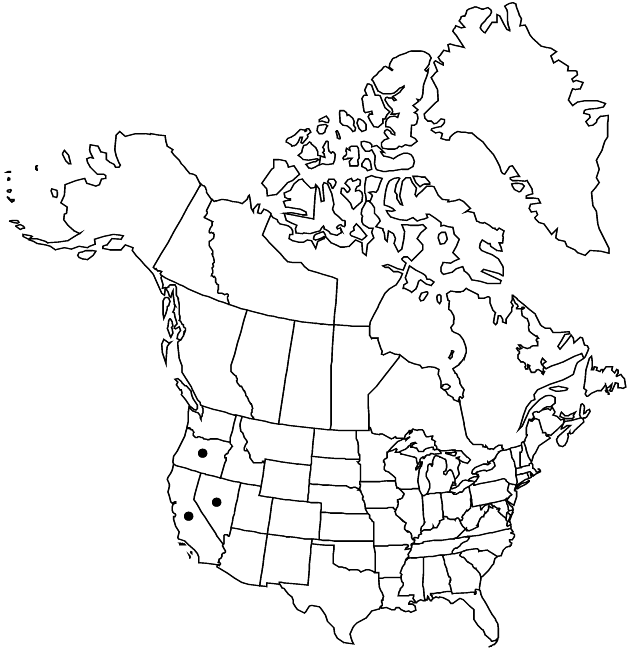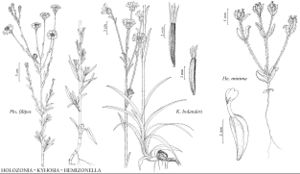Difference between revisions of "Kyhosia bolanderi"
Novon 9: 466. 1999.
IllustratedEndemic
Basionym: Anisocarpus bolanderi A. Gray Proc. Amer. Acad. Arts 7: 360. 1868
Synonyms: Madia bolanderi (A. Gray) A. Gray
imported>Volume Importer |
imported>Volume Importer |
||
| Line 63: | Line 63: | ||
|publication year=1999 | |publication year=1999 | ||
|special status=Illustrated;Endemic | |special status=Illustrated;Endemic | ||
| − | |source xml=https:// | + | |source xml=https://bitbucket.org/aafc-mbb/fna-data-curation/src/2e0870ddd59836b60bcf96646a41e87ea5a5943a/coarse_grained_fna_xml/V19-20-21/V21_724.xml |
|tribe=Asteraceae tribe Heliantheae | |tribe=Asteraceae tribe Heliantheae | ||
|subtribe=Asteraceae (tribe Heliantheae) subtribe Madiinae | |subtribe=Asteraceae (tribe Heliantheae) subtribe Madiinae | ||
Latest revision as of 20:14, 5 November 2020
Leaf blades (proximal) 5–35 cm × 4–15 mm. Phyllaries 7–14 mm. Disc corollas 5–8 mm. Ray cypselae 5–7 mm; pappi 0 or to 0.7 mm. Disc cypselae 5–9 mm; pappi 1–5 mm. 2n = 12.
Phenology: Flowering Jul–Sep.
Habitat: Meadows, stream banks
Elevation: 1000–2600 m
Distribution

Calif., Nev., Oreg.
Discussion
Kyhosia bolanderi is unusual among continental tarweeds for occurring in wet, montane habitats, in the North Coast Ranges, Klamath Ranges, and Sierra Nevada of the California Floristic Province. Ecologically, K. bolanderi is similar to another self-incompatible, robust, rhizomatous, perennial tarweed, Raillardella pringlei, which occurs with K. bolanderi in the Klamath Ranges.
Selected References
None.
Lower Taxa
None.
